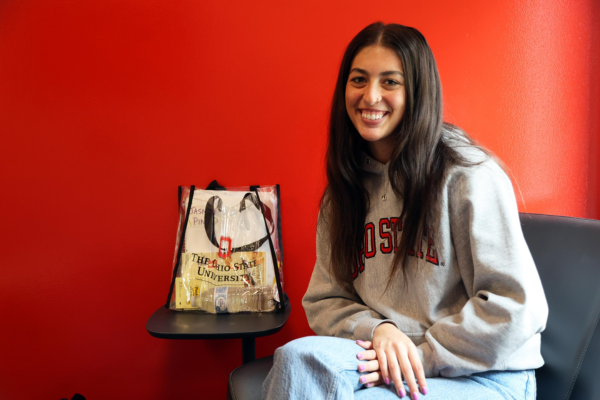Breaking Classroom Barriers: Jasmyn Maingi’s OPEEP Experience

During her freshman year at The Ohio State University, English major Jasmyn Maingi stumbled upon a flyer that would change the course of her college experience: an invitation to join the Ohio Prison Education Exchange Project, or OPEEP for short. Her deep-rooted commitment to social justice, along with minors in nonprofit management and social justice advocacy and public policy, made the flyer stand out to her immediately. Already being “very familiar with the prison industrial complex itself,” Maingi knew that though OPEEP diverged from most college student’s academic experience, it was something she needed to do. “I wanted to be able to take it and listen to these students,” she states. “I knew that what I wanted to do with my life directly aligned with this kind of marginalized community.”
The Ohio Prison Education Exchange Project is a program that lets Ohio State students and incarcerated students take classes together while also giving incarcerated students the ability to earn an accredited Ohio State degree. This opportunity to go into a prison once a week and take classes alongside incarcerated students can be an incredibly formative experience. “You're all in the same classroom. You're sitting right next to each other,” Maingi describes, “and when you're in the program, you kind of forget that you get to go home at the end of the day, and the incarcerated students have to stay there.” Maingi emphasizes that learning all together is “what's so special about it; you spend so much time with them that they become your friends too.”
Although she discovered OPEEP in college, Maingi’s passion for social justice was established well before she stepped onto campus. “I've always been fascinated with the criminal justice system, and, more importantly, the injustice in the criminal justice system,” explains Maingi. While collaborating with a youth-centered local nonprofit during her senior year of high school, Maingi was exposed to the rewarding work that could be accomplished through community outreach. From there, she has been involved in a variety of nonprofit initiatives, “especially engaging with the underprivileged minority community in [her] town.”
This early exposure to nonprofit work has been deeply intertwined with her decision to pursue English as a major. “I knew that I kind of wanted to do something more with writing, and I've been working in nonprofits for the last four years, " Maingi explains. “I wanted to do grant writing or something, to be able to do work to give voice to the marginalized community.” Maingi has also found this focus on social justice reflected in the English classes she’s taken. Highlighting a women’s literature course, she notes how getting to read feminist work has really opened her eyes to what life was like in the past. “I think being an English major is so much more versatile than everybody expects it to be,” she says, and “being able to communicate properly and express yourself thoroughly is important no matter what field you're doing.”
Now in her third year at OSU and having taken a few OPEEP courses, Maingi shares how the program has shaped her character. She has not only been able to learn about herself, but also “what it's like to be an incarcerated person, and about the injustice that they have, even on a daily basis.” Maingi encourages any students debating whether OPEEP is right for them to go into the program with an open mind and a willingness to learn. “You just have to be prepared to really kind of let everything go and just entirely be yourself,” she advises, “you guys are honestly one in the same, and you'll come to realize that within a few weeks of taking the class.” Describing OPEEP as a gateway for the other classes she has taken, Maingi also explains how she is now “able to have those really difficult conversations, talking about prison abolition, talking about marginalization, racism, classism, sexism.”
As she approaches her final year at Ohio State, Maingi credits OPEEP with shaping her career path in criminal justice advocacy. “It really encourages me to go the criminal injustice route,” Maingi explains., “I want to do what I can with my degrees and my education to be able to give justice back to these people who really deserve it.”
